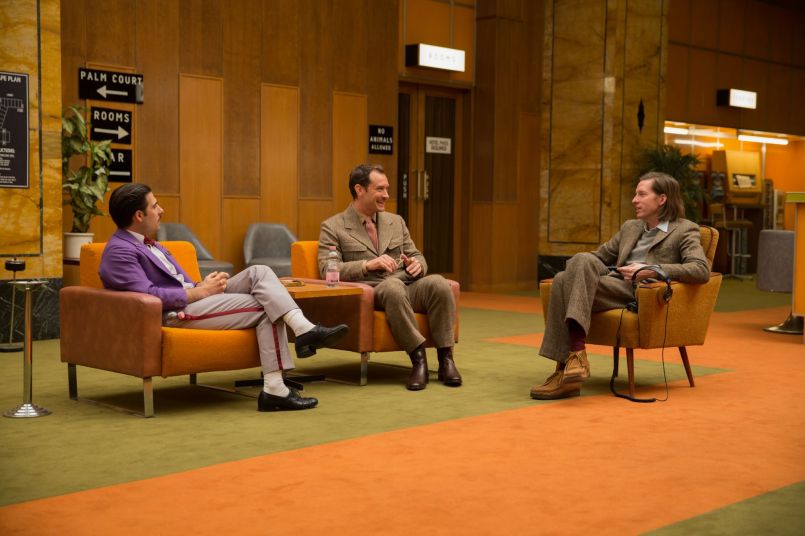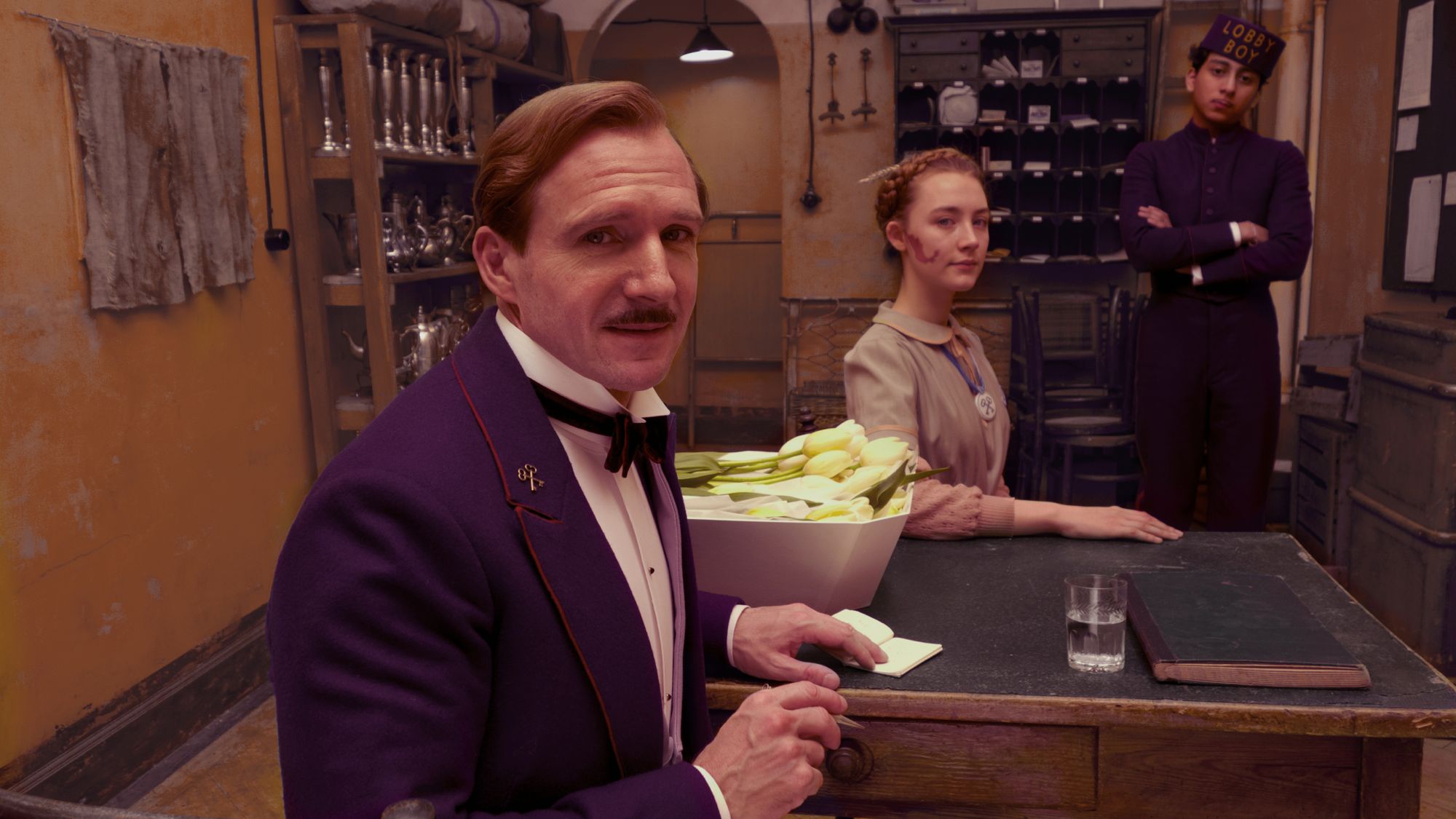There are very few directors who champion the ensemble cast as often—and thrive while doing it—as Wes Anderson. Within each of his eight films from his filmography, every single actor shines while holding each other up to create a stronger film together. This appreciation for the team, as well as the incredible casts that seem to gravitate towards Anderson, is perhaps seen best within his latest, The Grand Budapest Hotel.
Following the strangely delightful story of a flamboyant and extremely charming European hotel concierge named Monsieur Gustave H. (Ralph Fiennes) and his faithful lobby boy Zero Moustafa (Tony Revolori, F. Murray Abraham) as they try to prove Gustave’s innocence in the case of Madame D’s murder (Tilda Swinton). Along the way, the duo escapes evil inheritors (Adrien Brody), hit men (Willem Dafoe), and enemy soldiers (Edward Norton), while meeting up with other hotel service members around the region in the secret “Society of the Crossed Keys”—which includes a ton of Anderson staples like Bill Murray, Bob Balaban, and Wallace Wolodarsky.

Jason Schwartzman, Jude Law and Wes Anderson on the set of The Grand Budapest Hotel.
What makes The Grand Budapest Hotel such a great cinematic experience beyond the amazing performances is the attention to detail in creating each whimsical world. The plot surrounding young Zero and Gustave H. is only one of three storylines running throughout the film—the other two surround an author (Jude Law, Tom Wilkinson) and his discovery of the ornate hotel and its owner within different time periods of his life. Beyond different color schemes, Anderson specifically filmed each timeline in a different aspect ratio to inform viewers of where they were within the intertwined plots. It is these thoughtful facets that ensure that The Grand Budapest Hotel will continue to be seen as a whimsical masterpiece for years to come.—Bailey Pennick










